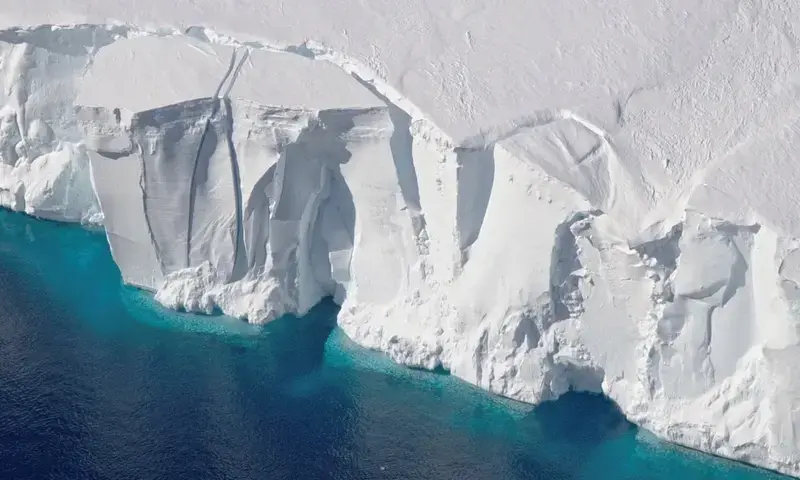Scientists warn of irreversible consequences from rapid loss of Antarctic sea ice
A new scientific study published in the journal Nature warns that the rapid loss of Antarctic sea ice could serve as a tipping point for global climate, leading to irreversible consequences such as rising sea levels, altered ocean currents, and significant loss of marine life.
The research provides an unprecedented look at the interconnected effects of global warming on Antarctica, the frozen continent at the South Pole. “Evidence is emerging for rapid, interacting, and sometimes self-perpetuating changes in the Antarctic environment,” the study states.
Utilising data from observations, ice cores, and ship logbooks, the study charts long-term changes in sea ice and contextualizes the recent, alarming decline. It highlights that a “regime shift” has caused Antarctic sea-ice extent to fall well below its historical variability, noting that this decline is potentially more abrupt and irreversible than the loss of sea ice in the Arctic.
Lead author Nerilie Abram emphasises that the changes are having cascading effects throughout the ecosystem, often amplifying one another. With a smaller ice sheet reflecting less solar radiation, the planet absorbs more heat, which could weaken the Antarctic Overturning Circulation an ocean current crucial for distributing heat and nutrients, as well as regulating weather patterns.
The study also highlights the detrimental impact on wildlife, particularly emperor penguins that breed on the ice and krill that thrive below it. Additionally, warming surface waters are expected to further diminish phytoplankton populations that play a vital role in drawing down atmospheric carbon.
“Antarctic sea ice may actually be one of those tipping points in the Earth’s system,” said Abram, a former professor at the Australian National University and now chief scientist at the Australian Antarctic Division.
While reducing global carbon dioxide emissions could mitigate the risk of significant changes in Antarctica, the study suggests that it may not fully prevent them.
“Once we start losing Antarctic sea ice, we initiate a self-perpetuating process,” Abram cautions. “Even if we stabilise the climate, we are committed to losing Antarctic sea ice over many centuries to come.”
For the latest news, follow us on Twitter @Aaj_Urdu. We are also on Facebook, Instagram and YouTube.



























Comments are closed on this story.